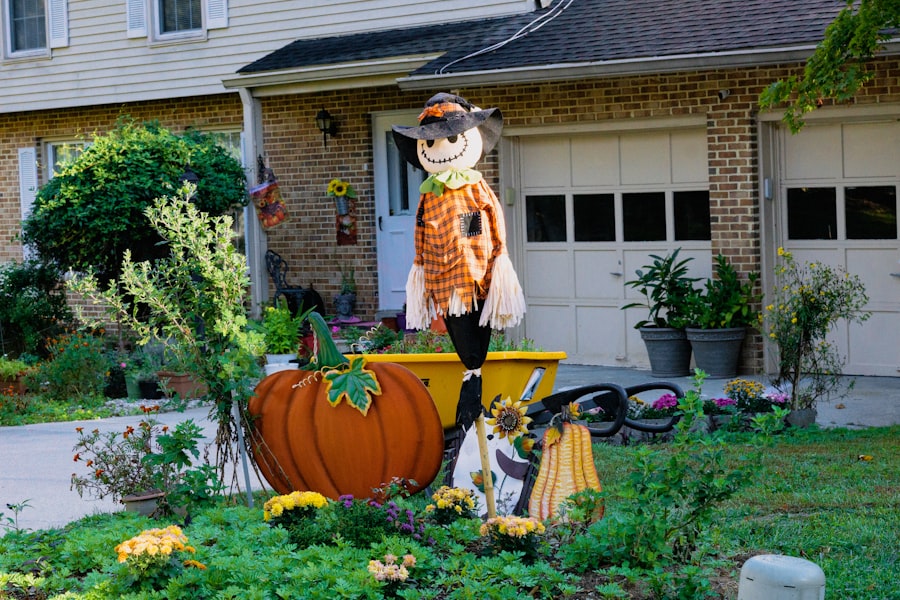Hawks are predatory birds renowned for their exceptional vision and efficient hunting skills. They inhabit both urban and rural environments, presenting a significant threat to domestic chickens. Identifying hawk presence in an area is crucial for implementing appropriate protective measures for poultry flocks.
Hawks are often observed soaring at high altitudes, scanning for potential prey. Their sharp talons and beaks are adapted for capturing and dispatching prey animals. Signs of hawk presence include circling behavior above properties or perching on nearby trees and structures.
Evidence of predator attacks, such as scattered feathers, blood, or other remains near chicken coops, may indicate hawk activity. These birds are known for their stealthy hunting techniques, capable of swift and unexpected attacks. Hawks communicate through distinctive high-pitched screeching calls, which can be heard during inter-hawk communication or hunting activities.
Frequent occurrence of these calls in an area suggests nearby hawk populations. Observations of hawks swooping down on small animals or birds provide clear evidence of active hunting behavior. Vigilance and awareness of hawk activity in the surrounding environment are essential for protecting domestic chickens from potential attacks.
Understanding hawk behavior and recognizing signs of their presence enables poultry keepers to implement effective safeguards and minimize predation risks.
Table of Contents
- 1 Implementing physical barriers: Building and maintaining secure enclosures for your chickens
- 2 Creating a hawk-free environment: Utilizing scare tactics and deterrents to keep hawks at bay
- 3 Utilizing natural predators: Introducing guardian animals to protect your chickens from hawks
- 4 Implementing sound and light deterrents: Using noise and light to deter hawks from your property
- 5 Consistent monitoring and vigilance: Keeping a close eye on your chickens and their surroundings to prevent hawk attacks
- 6 Seeking professional assistance: Consulting with experts for additional advice and strategies to protect your chickens from hawks
- 7 FAQs
- 7.1 What are some natural ways to keep hawks away from chickens?
- 7.2 What are some predator deterrents that can be used to protect chickens from hawks?
- 7.3 Are there any specific breeds of chickens that are more resistant to hawk attacks?
- 7.4 What should I do if I spot a hawk near my chicken coop?
- 7.5 Is it legal to harm or kill hawks to protect my chickens?
Key Takeaways
- Hawks can be identified by their sharp talons, keen eyesight, and distinctive hunting behavior
- Secure enclosures with sturdy fencing and covered tops can help protect chickens from hawk attacks
- Scare tactics such as reflective objects, noise makers, and predator decoys can deter hawks from targeting chickens
- Guardian animals like dogs or geese can help keep hawks away from the chicken coop
- Sound and light deterrents like motion-activated alarms and strobe lights can startle and deter hawks from the area
Implementing physical barriers: Building and maintaining secure enclosures for your chickens
Building a Secure Enclosure
One of the most effective ways to protect your chickens from hawk attacks is by implementing physical barriers around their living space. Building a secure enclosure for your chickens can help prevent hawks from gaining access to them and keep them safe from harm. When constructing a chicken coop or run, it’s important to use sturdy materials such as wire mesh or hardware cloth that can withstand the sharp talons and beaks of hawks.
Securing the Perimeter
Ensure that the enclosure is covered with a strong roof to prevent hawks from swooping down from above. Additionally, consider burying the wire mesh or hardware cloth several inches into the ground to deter hawks from digging underneath the enclosure. Regularly inspect the perimeter of the enclosure for any signs of wear or damage, and promptly repair any weak spots to maintain its effectiveness as a physical barrier against hawks.
Maintaining a Safe Environment
Maintaining a secure enclosure for your chickens is crucial for their safety and well-being. Regularly trim back any overhanging branches or foliage near the chicken coop or run to prevent hawks from using them as perches or hiding spots. Consider installing motion-activated lights or sprinkler systems around the perimeter of the enclosure to startle and deter hawks from approaching. It’s also important to keep the area around the chicken coop clean and free of debris, as this can attract rodents and other small animals that may attract hawks.
Creating a hawk-free environment: Utilizing scare tactics and deterrents to keep hawks at bay

In addition to physical barriers, utilizing scare tactics and deterrents can help create a hawk-free environment for your chickens. Scare tactics such as visual deterrents can be effective in deterring hawks from approaching your property. Hang shiny objects such as aluminum foil strips, CDs, or reflective tape around the chicken coop or run to create flashes of light that can startle and deter hawks.
Consider placing scarecrows or decoy predators such as owls or snakes near the enclosure to create the illusion of a potential threat to hawks. It’s important to regularly move and change the placement of these visual deterrents to prevent hawks from becoming accustomed to them. Another effective scare tactic is utilizing noise deterrents to keep hawks at bay.
Install motion-activated sound devices that emit loud noises such as clapping sounds, bells, or distress calls of other birds to startle and deter hawks from approaching. Additionally, consider playing recordings of predator calls or distress signals of other birds near the chicken coop or run to create a sense of danger for hawks. It’s important to vary the timing and frequency of these noise deterrents to prevent hawks from becoming desensitized to them.
By utilizing scare tactics and deterrents, you can create a hawk-free environment for your chickens and minimize the risk of predation.
Utilizing natural predators: Introducing guardian animals to protect your chickens from hawks
Introducing guardian animals such as dogs or geese can be an effective way to protect your chickens from hawk attacks. Dogs are natural predators that can help deter hawks from approaching your property and provide an added layer of protection for your flock. Consider getting a breed of dog that is known for its protective instincts and high energy levels, such as a livestock guardian dog or a terrier breed.
Train the dog to patrol the perimeter of the chicken coop or run and discourage any potential threats, including hawks. Additionally, consider keeping geese as they are known for their loud honking calls and aggressive behavior towards predators, which can help deter hawks from approaching your property. It’s important to properly socialize and train guardian animals to coexist with your chickens and understand their role in protecting them from predators.
Provide them with adequate shelter, food, and water, and regularly interact with them to build a strong bond and trust. Monitor their behavior around the chicken coop or run to ensure that they are effectively deterring hawks and other potential threats. By utilizing natural predators as guardian animals, you can enhance the security of your chickens and reduce the risk of hawk attacks.
Implementing sound and light deterrents: Using noise and light to deter hawks from your property
In addition to scare tactics, implementing sound and light deterrents can help deter hawks from approaching your property. Sound deterrents such as wind chimes, bells, or whistles can create a constant noise that can disrupt the hunting behavior of hawks and discourage them from lingering near your chicken coop or run. Consider installing motion-activated sound devices that emit loud noises such as clapping sounds, distress calls of other birds, or predator calls to startle and deter hawks from approaching.
It’s important to vary the timing and frequency of these sound deterrents to prevent hawks from becoming desensitized to them. Light deterrents can also be effective in deterring hawks from your property. Install motion-activated lights around the perimeter of the chicken coop or run to create sudden flashes of light that can startle and deter hawks.
Consider using solar-powered lights that automatically turn on at dusk and remain illuminated throughout the night to create a continuous deterrent effect. It’s important to regularly inspect and maintain these light deterrents to ensure their effectiveness in deterring hawks. By implementing sound and light deterrents, you can create a hostile environment for hawks and reduce the risk of predation on your chickens.
Consistent monitoring and vigilance: Keeping a close eye on your chickens and their surroundings to prevent hawk attacks

Stay Vigilant and Monitor Hawk Activity
Consistent monitoring and vigilance are essential in protecting your chickens from hawk attacks. Regularly observe your chickens and their surroundings for any signs of hawk activity, such as circling overhead or perching nearby. Keep an eye out for any unusual behavior in your flock, such as sudden agitation or distress, which may indicate the presence of a hawk nearby.
Maintain a Secure Environment
It’s important to be proactive in addressing any potential threats by immediately taking measures to deter hawks from approaching your property. In addition to monitoring your chickens, it’s important to regularly inspect the perimeter of the chicken coop or run for any signs of wear or damage to physical barriers or deterrents. Promptly repair any weak spots or replace worn-out materials to maintain their effectiveness in keeping hawks at bay.
Additional Measures for Enhanced Security
Consider installing security cameras around the property to monitor for any hawk activity and provide additional surveillance of your chickens’ surroundings. By consistently monitoring and maintaining vigilance over your chickens and their surroundings, you can effectively prevent hawk attacks and ensure their safety.
Seeking professional assistance: Consulting with experts for additional advice and strategies to protect your chickens from hawks
If you’re facing persistent hawk predation on your chickens despite implementing various deterrents and protective measures, it may be beneficial to seek professional assistance for additional advice and strategies. Consult with local wildlife experts, ornithologists, or avian specialists who have experience in dealing with hawk predation on poultry. They can provide valuable insights into the behavior and habits of hawks in your area and offer tailored recommendations for protecting your chickens.
Additionally, consider reaching out to professional pest control services or animal behaviorists who specialize in deterring predatory birds such as hawks. They can assess your property and provide expert guidance on implementing advanced deterrents or protective measures that are specifically designed to address hawk predation on chickens. By seeking professional assistance, you can gain access to specialized knowledge and resources that can help safeguard your flock from hawk attacks and minimize the risk of predation.
In conclusion, protecting backyard chickens from hawk attacks requires a multi-faceted approach that involves understanding the threat posed by hawks, implementing physical barriers, utilizing scare tactics and deterrents, introducing guardian animals, utilizing sound and light deterrents, maintaining consistent monitoring and vigilance, and seeking professional assistance when needed. By taking proactive measures to safeguard your flock from hawk predation, you can create a safe and secure environment for your chickens to thrive. With careful planning and diligent implementation of protective measures, you can effectively minimize the risk of hawk attacks on your chickens and provide them with the protection they need to live healthy and happy lives.
If you’re looking for ways to keep hawks away from your chickens, you may also be interested in learning about the best placement for your chicken coop and run. This article provides helpful tips on where to position your coop to ensure the safety and well-being of your flock. Proper placement can also help deter predators like hawks from targeting your chickens.
FAQs
What are some natural ways to keep hawks away from chickens?
Some natural ways to keep hawks away from chickens include providing overhead cover such as netting or trees, using scare tactics like reflective objects or noise makers, and keeping roosters to help alert the flock of danger.
What are some predator deterrents that can be used to protect chickens from hawks?
Predator deterrents that can be used to protect chickens from hawks include installing motion-activated sprinklers, using predator-proof fencing, and keeping guard animals such as dogs or llamas.
Are there any specific breeds of chickens that are more resistant to hawk attacks?
Some chicken breeds, such as the Brahma and Jersey Giant, are known to be more resistant to hawk attacks due to their larger size and ability to defend themselves.
What should I do if I spot a hawk near my chicken coop?
If you spot a hawk near your chicken coop, it’s important to take immediate action to protect your flock. This can include using scare tactics, providing overhead cover, and keeping a close eye on your chickens until the hawk has moved on.
Is it legal to harm or kill hawks to protect my chickens?
Hawks are protected under the Migratory Bird Treaty Act, which makes it illegal to harm or kill them without a permit. It’s important to explore non-lethal methods of protecting your chickens from hawks and to consult with local wildlife authorities for guidance.
Meet Walter, the feathered-friend fanatic of Florida! Nestled in the sunshine state, Walter struts through life with his feathered companions, clucking his way to happiness. With a coop that’s fancier than a five-star hotel, he’s the Don Juan of the chicken world. When he’s not teaching his hens to do the cha-cha, you’ll find him in a heated debate with his prized rooster, Sir Clucks-a-Lot. Walter’s poultry passion is no yolk; he’s the sunny-side-up guy you never knew you needed in your flock of friends!







